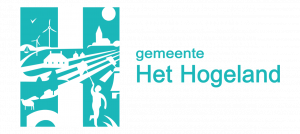What is the municipality of Het Hogeland?
Just like the business community, governments are moving along with the digitisation of society. Civil servants mainly carry out their work digitally. This requires a reliable IT infrastructure, with applications, data and connections that can be trusted upon.
The municipality of Het Hogeland in the Dutch province of Groningen is an example of this. The former municipalities of De Marne, Bedum, Winsum and Eemsmond have merged into this new municipality, which is one of the largest in the Netherlands in terms of land area.
Anticipating the future
Due to the size of the municipality, civil servants work at several locations: citizens must be able to reach the municipality easily. But that also means that these locations must be interconnected and have proper internet access. Municipal officials must be able to work at all locations, which means that virtual workplaces and things like email should be available to every employee at every location. Jurrie van der Deen, senior automation employee at the municipality of Het Hogeland , explains why the municipality of Het Hogeland relies on Duocast.
The connectivity of our locations must be well organized and all these locations must have stable, fast internet connections.
“We were looking for a reliable supplier in the region that could meet different needs. To this end, we have gone through an extensive selection procedure. Van der Deen sums up: “We wanted to be able to serve 750 users from a central location. They must be able to use the applications and data to do their work without any problems. The connectivity of our locations must be well organized and all these locations must have stable, fast internet connections. We also want to have the possibility to build in extra security through a twin data center setup. It is important to us that we can establish secure connections to central government databases, such as the Land Registry, or the Municipal Personal Records Database.”
No-nonsense
 One of the biggest challenges Van der Deen and his colleagues previously faced was realizing a stable connectivity. “From our server room in one of the towns in the municipality it was complex to serve all locations properly because connectivity was not always sufficient. We depended on what local providers had to offer. Moreover, there was a single point of failure, because if the connection from the server room to the outside failed, all locations would be without data and applications. That was no longer acceptable. The connectivity between the locations has now been greatly improved, interdependencies have been reduced or completely removed from the network and our internet connection has been made redundant.
One of the biggest challenges Van der Deen and his colleagues previously faced was realizing a stable connectivity. “From our server room in one of the towns in the municipality it was complex to serve all locations properly because connectivity was not always sufficient. We depended on what local providers had to offer. Moreover, there was a single point of failure, because if the connection from the server room to the outside failed, all locations would be without data and applications. That was no longer acceptable. The connectivity between the locations has now been greatly improved, interdependencies have been reduced or completely removed from the network and our internet connection has been made redundant.
You can exchange ideas at a technical level, without losing perspective of the end user
In time, the municipality of Het Hogeland will also house its storage and computing in a data center. Van der Deen emphasizes that Duocast’s no-nonsense approach and its proximity are two major advantages for the municipality. “A good relationship with people of Duocast is quickly established and nothing is too crazy. You can exchange ideas at a technical level, without losing perspective of the end user. And although we still manage everything ourselves, we no longer have to worry about the conditions in which our IT infrastructure operates. Climate control, power supply and physical security are all taken care of for us.

